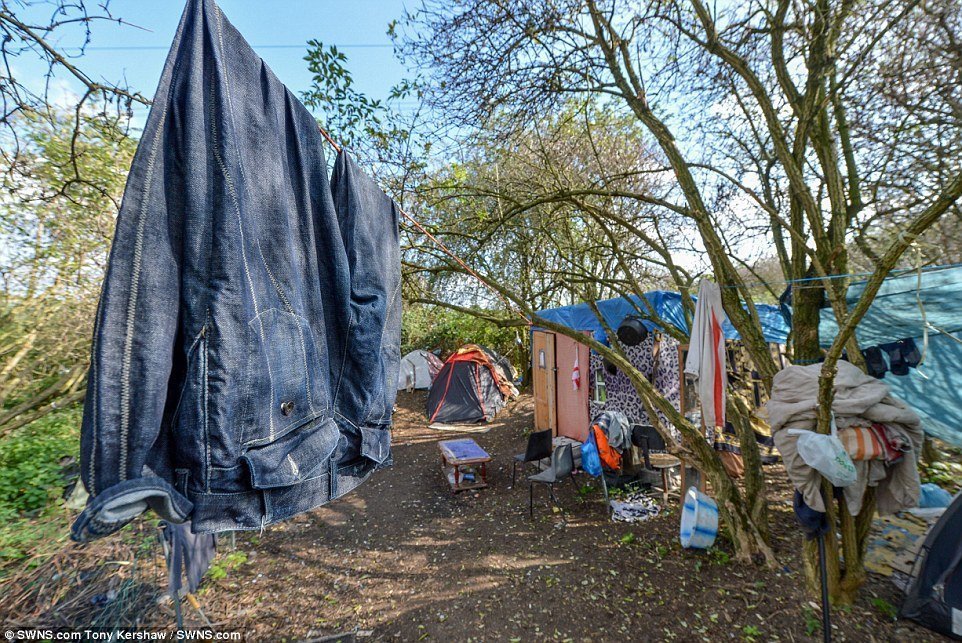
What will Brexit mean for homeless EU nationals?

In the forgotten corners of outer London, amongst scrubs and thorns and rubble, small encampments are springing up. These makeshift sites often resemble refugee camps on the surface, cobbled together from tents, plywood and plastic sheeting, scattered with refuse and filled with people facing life in difficult, unsanitary, and dangerous conditions. Yet most of the inhabitants of these uneasy spaces are EU citizens, exercising their legal right to come and work in the UK.
These EU nationals are, in many ways, emblematic of the controversies currently swirling around the issues of immigration, austerity, and Brexit. Today, as Teresa May begins the long and fiendishly complex process of extracting Britain from the European Union, their status is more controversial and uncertain than ever.
Early indications from new research by Thames Reach and Commonweal are that such people represent a new and poorly recognised category of rough sleeper. They don’t fit into traditional definitions of homelessness, and existing housing markets are failing to meet their needs. They’ve been tarred as menacing immigrant scroungers by much of the press, but almost all the inhabitants of the encampments are working long hours in exploitative, precarious jobs with unsafe conditions and few legal safeguards. None are receiving any state aid.
Faced with spiraling rent in London and limited options for those without a deposit such as massive overcrowding or the risks of illegal and unsafe beds-in-sheds type housing and exploitative landlords, they choose to sleep rough so they can save as much as possible to send back home to their families. Many are only looking to stay in the UK for a few months, and so aren’t interested in long-term accommodation. They don’t seek public assistance in the form of benefits or housing assistance, and their transient existence makes it difficult for support services to reach out, connect, and provide help.
Although many of the inhabitants are there voluntarily, life in the encampments is dirty, uncomfortable and unsafe. The lack of basic washing or toilet facilities fosters disease and infection, and the makeshift nature of the camps provides poor protection from the elements. As well as the toll on mental and physical well-being, informal encampments such as these generate rubbish, noise and waste that pollutes their surroundings and damages public spaces. This is a manifestation of market failure that has a huge negative impact on local communities and residents. The longer the camps continue, the more they become entrenched, their residents unable to break out of the vicious circle of homelessness.
Although the Home Office has threatened deportation, actually removing EU nationals from the UK is a long and complex process, and in many cases may not be legally possible. And merely clearing out the camps, as some councils have attempted to do, will not solve the problem. Without existing services to provide more appropriate shelter, access to literacy or job training, or advice on finding less exploitative work, residents will merely be displaced into new camps.
As article 50 is triggered today, some might argue that this is an issue that will (eventually) solve itself: as Britain withdraws from the European Union and ends the free movement of EU citizens, it will become much harder for low skilled Eastern Europeans to reach London, and these encampments will fade away. However, like many Brexiteer pronouncements, this argument seems to me a curious mixture of naivety and cynicism.
Firstly, no one is sure how immigration will work after Brexit. Both the European Parliament and David Davis himself have suggested that free movement of people will not end when Britain eventually leaves the Union. Secondly, Brexit is at least 2 years away, if not considerably more, and these people need help now. And thirdly, demand for cheap, flexible labour will not simply disappear once Britain leaves the EU – and that demand will be met, one way or another.
And so, the inhabitants find themselves in limbo, trapped between the unaffordability of London housing and the failure of the market and the housing sector to provide realistic alternatives.
At Commonweal Housing, our founding mission is to address injustices such as these. We seek out situations that may have escaped the attention of existing authorities, reach out to people who have fallen through the social safety net, and work to provide the leadership and innovation required to bring about much-needed policy change.
In partnership with Thames Reach, a London-based charity, we’re beginning to explore new models of society can work together to help house and support the marginalised and often exploited workers who have travelled from all over Europe to find work in the UK’s shadow economy.
Homelessness amongst EU nationals is a complex and controversial issue. It touches upon many raw nerves in post–Brexit Britain: immigration, freedom of movement, welfare tourism, the clash between “strivers” and “scroungers”. But these are real people, suffering real injustice and living through real hardship. No one knows what will happen to these people as a result of the Brexit negotiations, but one thing is clear: currently, the system is failing them and everyone suffers from the rational choices they then chose to make. We at Commonweal Housing believe that needs to change. We welcome the opportunity to grapple with difficult divisive questions such as these, even if – especially if – there are not always popular or clear-cut answers.
– Ben Martin, Policy & Comms Coordinator

Tagged: Brexit, EU, EU referendum, European Union, homeless, housing, london, Tent encampments, Thames Reach
